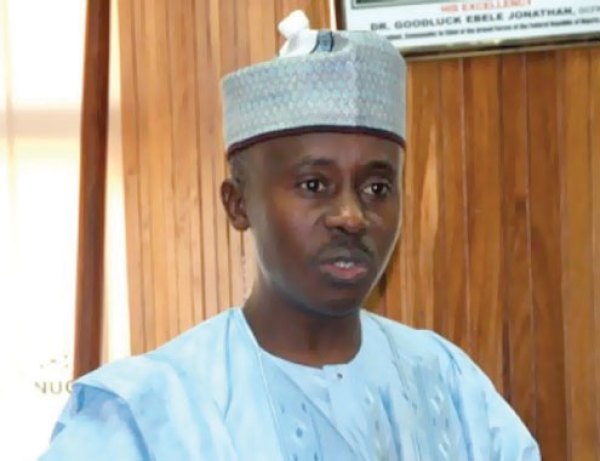It was a landmark ruling in the country’s fight against corruption when, after nine years of trial, a court last week convicted chairman of the then House of Representatives Ad-Hoc Committee on Fuel Subsidy over fraud allegations. The chairman of the investigation committee, Faruk Lawan, was sentenced to seven years in prison for receiving bribe from billionaire oil magnate, Femi Otedola, who was the owner of one of the firms that Lawan’s committee was asked to investigate.
An FCT High Court sitting in Apo and presided over by Justice Angela Otaluka found Lawan guilty of all the three counts of bribery allegations brought against him. The case had moved to and from the court since it began in 2012. While delivering judgment, the judge held that from the pool of evidence before the court, the prosecuting lawyer, Adegboyega Awomolo (SAN), had established a case of corrupt practices against the defendant. “The defendant corruptly asked for $3 million and received a $500,000 bribe in two tranches from Femi Otedola,” the judge said. Justice Otaluka dismissed Lawan’s claim that he received the $500,000 to obtain proof of moves by Otedola to induce him and members of his committee, adding that the accused failed to call any member of the House Committee to buttress his claim of collecting the money to implicate Otedola.
The judge, thereafter, sentenced the four-term federal lawmaker (who served between 1999 and 2015) to seven years each for counts one and two and five years for count three. The sentences are to run concurrently. Lawan was also asked to return the $500,000 he collected from Otedola to the federal government. However, no case was filed against the giver of the alleged bribe, Otedola, who mentioned during the trial that the bribe money he gave to Lawan was given to him by the Department of State Services (DSS) as part of a sting operation. Otedola insisted during Lawan’s trial that his company was not involved in the fuel subsidy regime.
It would be recalled that charges were filed against Faruk Lawan by the Independent Corrupt Practices and other related offences Commission (ICPC) on behalf of the federal government for demanding and receiving a bribe of $500,000 from Otedola. The money was part of the $3 million Lawan requested with a promise to have the business mogul’s firm removed from the list of companies indicted over fuel subsidy fraud. Justice Otaluka was the third judge that heard the case since Lawan’s first arraignment. Two judges who earlier handled the matter could not conclude it as the first one was elevated to the Court of Appeal bench and the second withdrew after Lawan accused her of bias; the same allegation he levelled against Justice Otaluka.
While it is heart-warming that the judicial system in Nigeria is seen to be working; there is yet a long way to go because the pace of justice is very slow. Nine years is a long period to try a bribery allegation case. For example, principal witnesses or the prosecutor could have died. The case file could also get missing. Also, people could lose interest in it and the import of the judgment could be lost on those who ought to learn from it. It is obvious from Lawan’s prosecution that few but well-prepared charges, not dozens of unsubstantiated allegations, is the essential requirement for convicting suspects in corruption cases. If all anti-graft agencies in the country would remain diligent in investigations, as the ICPC did in Lawan’s case, the courts would secure more convictions. We, therefore, urge them to be more diligent in their work.
Bribery and corruption, especially among public office holders, have been the most critical bane of governance in Nigeria; a basic factor that explains the country’s decades of under-development. Farouk Lawan’s corrupt act was a betrayal of public trust reposed in him. This particular bribery case destroyed the reputation he earned during his 12-year political career. His fall and his imprisonment should be a lesson to all public office holders who, because of the inexcusable challenges associated with prosecuting cases in Nigerian courts, often think that there are no consequences for bad behaviour. The law, where there’s justice, is supreme. Now that the case of Farouk has been tackled, we urge the anti-corruption agencies to go after all those indicted in the fuel subsidy and ensure that they are all punished as the impact of their sins is still being felt by Nigerians.

 Join Daily Trust WhatsApp Community For Quick Access To News and Happenings Around You.
Join Daily Trust WhatsApp Community For Quick Access To News and Happenings Around You.


